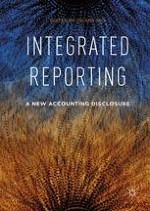2016 | OriginalPaper | Chapter
5. Integrated Reporting: Precursor of a Paradigm Shift in Corporate Reporting?
Authors : Richard Barker, Timotius Kasim
Published in: Integrated Reporting
Publisher: Palgrave Macmillan UK
Activate our intelligent search to find suitable subject content or patents.
Select sections of text to find matching patents with Artificial Intelligence. powered by
Select sections of text to find additional relevant content using AI-assisted search. powered by
